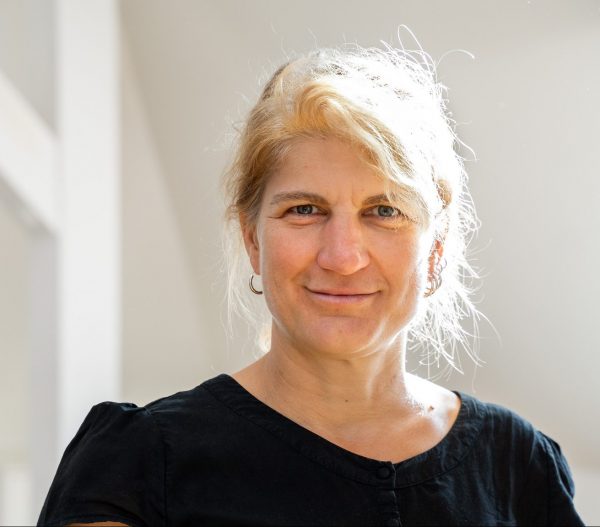Keynote Speakers of the 2019 INUAS Conference Housing under Pressure

Amita Bhide and Javier Burón Cuadrado are also participating in the Open Discussion on November 6, at 13:00.
November 4, 10:00
Loretta Lees: Planetary gentrification: institutionalised apartheid?
Loretta Lees is an urban geographer who is internationally known for her research on gentrification/urban regeneration, global urbanism, urban policy, urban public space, architecture and urban social theory. She has been identified as the 17th most referenced author in urban geography worldwide and the only woman in the top 20 (Urban Studies, 2017, doi: 10.1177/0042098017717205).
Urban theorist Richard Florida wrote in 2008 that ‘the most successful cities and regions in the United States and around the world may increasingly be inhabited by a core of wealthy and highly mobile workers leading highly privileged lives, catered to by an underclass of service workers living farther and farther away’. In this talk I argue that global society and space is moving toward a state of planetary gentrification, related to the ascendancy of the secondary circuit of real estate, that is leading to institutionalised apartheid, creating new spaces of exclusion, justified as progress and development and even as helping the poor.
November 4, 11:00
Amita Bhide: The Nation as real estate: Housing utopias in contemporary India
Dr. Amita Bhide is currently Professor and Dean, School of Habitat Studies, Tata Institute of Social Sciences. She teaches courses linked to housing at the Institute for over eight years. She has actively researched housing policies including programs such as Slum Rehabilitation Scheme ,PPPs and engaged in policy level inputs linked to pro poor housing, real estate regulation through task forces of the state government. In recent years, her research has extended to study of housing issues and affordable housing in particular, in small and medium towns of Maharashtra. She also contributes to pan- India civil society networks linked to housing. Her recent publications include ‘The Regularising State’, and ‘Comparing Informalities’.
The turn of the millennium has been characterized by an unprecedented emphasis on provision of housing for the urban poor in India. This push has been articulated through several utopias – ‘slum free cities’, ‘pro poor urban planning’, ‘inclusive housing’ and more recently ‘housing for all’. An analysis reveals that these policies are part of a push for rapacious development of land in the interest of private capital by the state. This paper engages with the modes of this state-capital nexus and the issues that emerge from the same.
November 5, 13:00
Sascha Roesler: Urban Climate in Everyday Life
Sascha Roesler is an architect and theorist, working at the intersection of architecture, ethnography, and sciences and technology studies. Since 2016, he is the Swiss National Science Foundation Professor for Architecture and Theory at the Academy of Architecture in Mendrisio, Switzerland. Roesler leads a group of doctoral and postdoctoral researchers working on city climate phenomena from the perspective of architecture and urban design. Most recently, Roesler co-edited the anthology “The Urban Microclimate as Artifact” (Basel 2018).
There are two basic traditions of inquiring urban climates from the perspective of architecture and urban design: on the one hand large-scale approaches, by considering the environmental factors and the built structures of cities and on the other hand micro-scale approaches, by referring to the sensorial experiences and the thermal practices of residents. In this talk, the second line of research shall be highlighted by discussing the competences, techniques and material resources engaged in the creation of various microclimates across the scales as well as along the seasons. In many parts of the world, cities are characterized by the absence of official thermal infrastructures in the residential sector and the strong presences of the residents’ agency for the control of microclimates, both inside and outside of the buildings.
November 6, 12:00
Javier Burón Cuadrado: Barcelona housing public policies: trapped between welfare state tardiness and globalization externalities
Javier Burón Cuadrado is Housing Manager of Barcelona City Council. Mayor in Law and Minor in Business (Licenciado en derecho por la Universidad de Deusto, especialidad jurídico-económica). Master in Business Administration (MBA) and in Taxes (MAF). Expert in public policy and housing market as well as in administration reform and new forms of public-private management. He has previously been a member of Urbania ZH Management, a public management consultancy firm. He has been lawyer of Cuatrecases Gonçalves Pereira, in the area of public law. He has been Deputy Minister for Housing and Planning Director of the Basque Government. He has also been legal and economic consultant to parliamentary groups in the Congress of Deputies (Congreso de los Diputados) and in the Basque Parliament (Eusko Legebiltzarra).
Short overview of the current situation of the housing market in the city of Barcelona, description of the main municipal housing & urban tools in order to facilitate economic accessibility & mixture (social & affordable local housing plan, short term touristic rents municipal town planning instrument, low rent district development plans, etc), the role of other public administrations and the judiciary, the need of public private partnerships, the unavoidable state regulation controversy and future challenges to be addressed.








